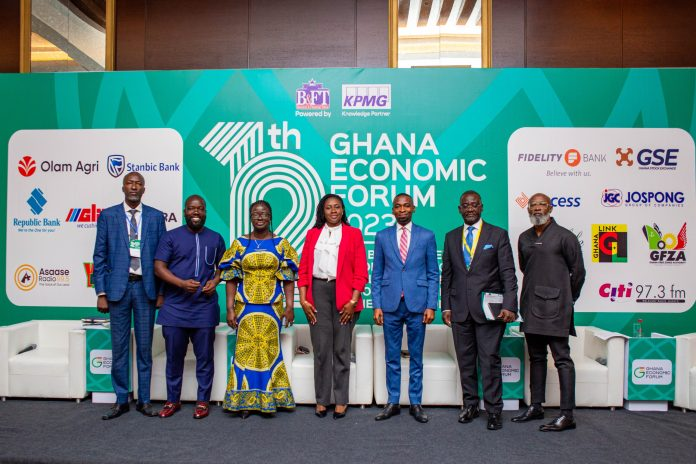
Ghana: SMEs encouraged to leverage AfCFTA
Small and medium scale enterprises (SMEs) are encouraged to make the most of the African Continental Free Trade Area (AfCFTA) by actively pursuing external market opportunities.
As discussed by experts during the 12th Ghana Economic Forum, this approach can enhance local production, decrease reliance on imports, and contribute to the country’s economic recovery.
During a plenary session titled ‘Looming global recession? A myth or a potential reality given the current challenges in the financial sector and business environment,’ the panelists took the opportunity to discuss strategies for SMEs and governments to leverage the benefits of the AfCFTA initiative.
Lecturer at the University of Ghana’s Department of Economics, Dr. Priscilla Twumasi Baffour pointed out the irony that Africa, a tropical continent, still heavily relies on food imports. pointed out the irony that Africa, a tropical continent, still heavily relies on food imports.
“Perhaps this is where the AfCFTA is a good initiative for us to get away from the problem of fragmentation. If we are looking at an African scene, then we will be moving into markets where companies will be dealing with a billion and a half people on the continent. That opens up opportunities for innovation, opportunities for expansion and economies of scale,” she said.
Dr. Priscilla Twumasi Baffour advocated for the elimination of barriers that impede the seamless movement of goods and services within African countries, such as the absence of a common currency. She particularly expressed concern about the annual importation of fruit juices exceeding $3 billion into Africa.
“In the case of fruit juices for example, why are companies not focusing on expansion and exporting within the African zone? The reality is that there are so many barriers which are making products expensive and uncompetitive. Yes, we need foreign investments; those are good for improving the deficiencies we have; but the reality is that local capacity is always the best,” she noted.
Expanding on her point, she cautioned that unless African countries, through initiatives like AfCFTA, establish a unified medium of exchange for trade, the continent’s economies will remain susceptible to external economic disruptions.
When discussing how Africa can reduce funding costs to boost its economy, Andrew Akoto, Partner and Head Advisory at KPMG, emphasized the significance of deliberately establishing channels for the consumption of locally-produced value-added products.
“As a nation or as a region, we are blessed. We have a very wide expanse of arable land and governments must pay attention to what the SMEs community’s needs are. But it is not enough to increase our production capacity; we must also ensure that there is a market for products. If the ordinary entrepreneur produces something and there is no off-taker, they will stop,” he added.
Supporting the push to harness the benefits of AfCFTA, Kate Djankwei Abbeo, Deputy Chief Executive Officer of the Ghana Free Zones Authority (GFZA), stressed the importance of understanding our private sector, where SMEs make up more than 90 percent. Engaging with them is vital, as their needs may vary; some may seek market access rather than funding.
“We have all signed the African Continental Free Trade Agreement, and it is headquartered here. How are we taking advantage of this market access? We need to leverage this position by engaging our SMEs” she said.















